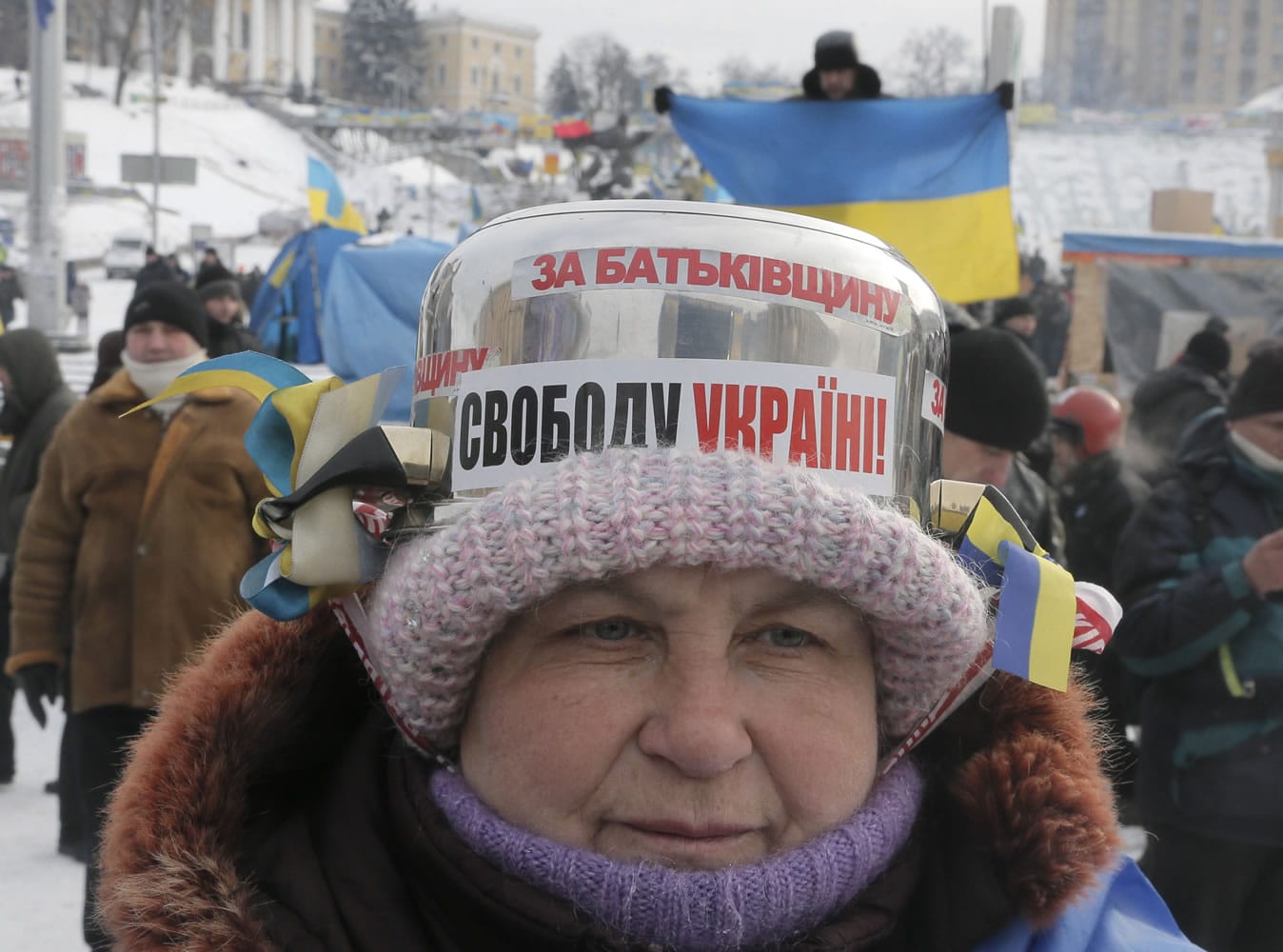KIEV, Ukraine — Ukraine’s parliament on Wednesday passed a measure offering amnesty to those arrested in two months of protests, but only if demonstrators vacate most of the buildings they occupy. The opposition quickly greeted the move with contempt.
The measure was put forth by a lawmaker from the party of President Viktor Yanukovych, who is seeking to end the protests, which are calling for his resignation. The measure was a softer version of an earlier proposal to only offer amnesty if all protests dispersed.
But the opposition regards the arrests in the protests — 328 by one lawmaker’s count — as fundamentally illegitimate.
“In reality, parliament has just passed a law on hostages. The authorities have themselves recognized that they are taking hostages as terrorists, so they can trade the hostages,” said Oleh Tyahnybok, leader of the Svoboda party and one of the protests’ top figures, according to the Interfax news agency.
That disdain was echoed in Kiev’s central Independence Square, where protesters have set up a large tent camp and conducted around-the-clock demonstrations since early December.
“Is this a compromise, or are these political prisoners?” asked 30-year-old demonstrator Artem Sharai. “We will seize new buildings, if the authorities don’t really change the situation in the country.”
Protesters are demanding Yanukovych’s resignation, early elections and the firing of authorities responsible for violent police dispersals of demonstrators. The protests started after Yanukovych backed out of a long-awaited agreement to deepen ties with the European Union, but quickly came to encompass discontent over corruption, heavy-handed police and dubious courts.
Three demonstrators died in clashes with police this past week, as anger boiled over harsh anti-protest laws that Yanukovych pushed through this month. Parliament voted Tuesday to repeal those laws, but Yanukovych has not signed the measure.
The bill would not apply to several city buildings in the center of Kiev that the protesters use as dormitories and operation centers, and are key support facilities for the protest tent camp on the main square. With temperatures dropping as low as minus 4 F at night, continuing the protests without places to shelter would be virtually impossible. But the Kiev City Hall, as well as regional administration buildings seized by protesters in western Ukrainian cities, will have to be vacated, according to the Unian news agency.
Along with proposing that parliament repeal the new laws, Yanukovych also has accepted the resignation of the prime minister, one of the figures most despised by the opposition. But there have been no signs of compromise on the root issues of the protests.
There are growing concerns about dissension among radicals and moderates within the broad-based protest movement.
Earlier Wednesday, one group of protesters clashed with another in bid to free a government building that they had seized in Kiev. At least two protesters were injured. Andriy Khoronets, an activist with the Svoboda party, which represents more moderate protesters, tried to force members of the more militant Spilna Sprava group to vacate the Agriculture Ministry building as part of a compromise with the government.
“We must be seen as people who can fulfill one’s obligations,” Khoronets told The Associated Press outside the building. “There should be no anarchy.”
The protests erupted after Yanukovych turned down a deal in November with the European Union in favor of getting a $15 billion bailout from Russia. Protesters have shifted to demanding more human rights, less corruption and more democracy in this nation of 45 million.



